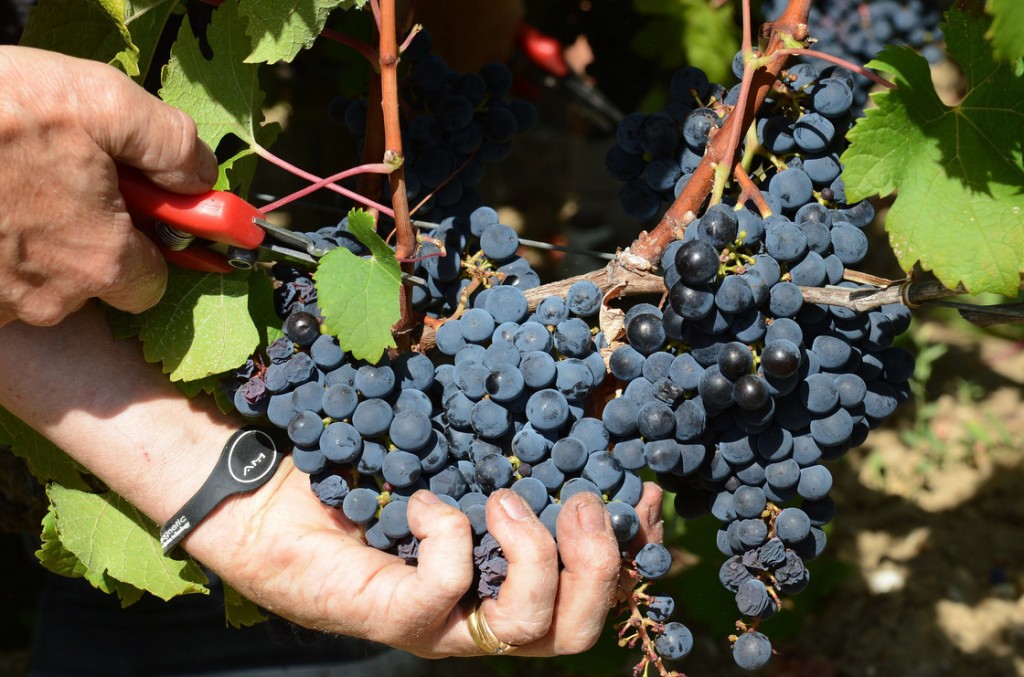Already, climate change is creating new winners among Europe's winemakers. In southern England, warmer temperatures are credited with setting off a sparkling wine boom. In Germany, where Riesling and Gewurztraminer have long been superstars, new grape varieties are beginning to thrive, says German viticulturist Hans Reiner Schultz, a professor at Hochschule Geisenheim University.
"The pinot noir we're growing is now fit to challenge the French," Schultz says.
Meanwhile, winemakers in other parts of the continent are feeling the heat, and there is increasing discussion about changing the rules to allow them to introduce grape varieties that are currently prohibited but likely to thrive under future climate conditions.
And grape growers, who must look ahead decades to when their vines will be in prime production, may soon be planting new varieties of vines known to produce fruit better in warmer, drier climates. Experimental government vineyards are already doing this.
"Changing grapevine varieties is absolutely an option, not in a short term, but by 2050 to 2070," Kees Van Leeuwen, of the Agricultural University of Bordeaux, tells The Salt. "We are currently experimenting in our research center [the Institut des Sciences de la Vigne et du Vin] how later-ripening varieties behave in the Bordeaux climate."
Late-ripening varieties are considered the best candidates for helping regions adapt to climate change. That's because, in general, the later that grapes ripen, the better their sugar-acid balance — an important component in winemaking.
When grapes ripen especially early — as they do in warm years — they may fail to develop the acidity necessary for making good wine. This means that many grapes that currently ripen in the optimal harvest time of September might, in a warmer future, become relatively useless to some winemakers who use them today.
Leeuwen says changing French laws on regional grape use won't be easy, and could take as long as 15 years.
Other regulations are already breaking down -- such as laws forbidding irrigation. The practice is considered taboo by many, and some wine critics feel it can result in watery-tasting wines.
But in exceptionally hot and dry conditions, watering vines can help increase the yield of fruit. And in 2006, the French government decided to do away with its prohibition on irrigating. Anti-irrigation laws have also been loosened in parts of Spain, says Schultz.
"When they changed the rule [in France], it was like a second French Revolution, because many people were very, very opposed to this," Schultz says. Now, he adds, "there is no more talk of prohibiting irrigation."
That rule change comes at a cost, says Leeuwen. He says irrigation can increase the soil's salinity level, which can be harmful to grapes. In Bordeaux and other fine wine regions, where the richness of the dirt is credited for the quality of the wine, the consequences of irrigation could be dire. Leeuwen says salinity buildup in some southern Australian vineyards is causing winemakers to abandon them.
But Michel Chapoutier, a winemaker in the Rhone Valley, has more confidence in the future. He thinks current regulations already give winemakers all the leeway they need to use different grape varieties to adapt to climate change. A Bordeaux will still be a Bordeaux, he argues, without a change in rules or a compromise in quality — winemakers will merely have to adjust their blend ratios.
"Bordeaux [winemakers] will lower their amount of merlot and will raise their amount of petit verdot, while the Southern Rhone will lower their amount of syrah and raise their amounts of grenache and mourvedre," Chapoutier says.
Lamberto Frescobaldi, of his family's winery in Tuscany, says he believes old traditions should not be allowed to hinder winemakers from adapting to climate change — even if it means permitting new grapes in their wines. But he doubts that Tuscan winemakers will ever let sangiovese, the main variety of the region, slip to the wayside.
Schultz, too, expects that historically dominant wine regions will do everything they can to avoid giving up the grapes that have defined them for centuries.
"Burgundy without a pinot noir or chardonnay," he says, "would not be the Burgundy we know."
Copyright 2013 NPR.
